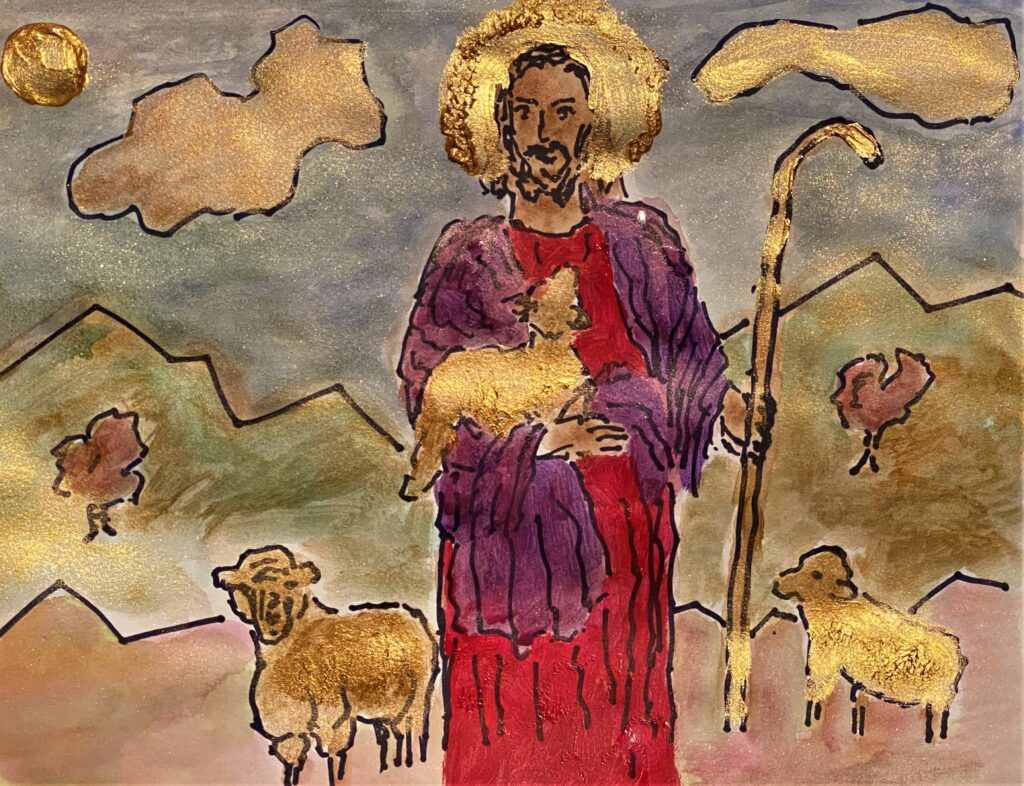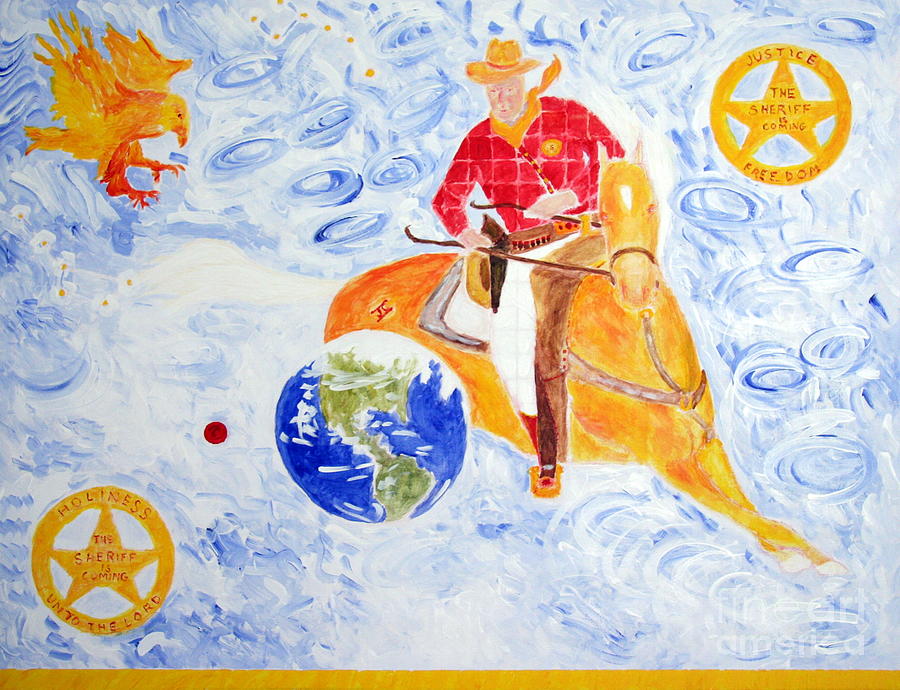[Google-Translate] Translate this into your own language!]

Join The “true” Church of Jesus Christ of Latter-day Saints today.
Click on the red button to translate this into your language.
Jesus the Resurrected Living Christ is:
Your Advocate with the Father,
The Almighty God,
Alpha and Omega,
The Author and Finisher of Our Faith,
Beloved Son of God,
Bishop of Our Souls,
The Bread of Life,
Bridegroom,
Bright and Morning Star,
Carpenter,
Chief Cornerstone,
Christ
Counsellor,
Creator,
Dayspring,
Fountain of Living Water,
Good Shepherd,
Head of the Church,
High Priest,
Holy One of Israel,
I Am,
Jehovah,
Jesus is the Christ,
Jesus is the Living Christ,
Judge,
King of Israel,
King of Kings,
King of the Jews,
Lamb of God,
lmmanuel,
Lion of the Tribe of Judah,
Living Water,
Lord,
Master,
Mediator,
Messiah,
Only Begotten Son,
Prophet,
Redeemer,
Revelator,
Rock,
Savior,
Seer,
Shiloh,
Son of God,
Son of Man,
Son of the Living God the Father,
Teacher,
The Almighty,
The Bright and Morning Star,
The Lion of the Tribe of Judah,
The Life,
The Mighty God,
The Prince of Peace,
The Shepherd,
The Truth,
The Way,
The Word,
The True Vine,
The Living Water,
Wonderful.
Are you searching for the true Church of Heavenly Father and His Beloved Son Jesus Christ?
If so, you have come to the right place. Their true Restored Church is The Church of Jesus Christ of Latter-day Saints.
To translate this into your language click the red button below.

Heavenly Father lives. Jesus is the Resurrected Living Christ. Thru the Prophet Joseph Smith, Jesus restored His True Church, The Church of Jesus Christ of latter-day Saints, the true Church, built on a foundation of living apostles and prophets who hold the holy priesthood keys, WITH JESUS AS CHIEF CORNERSTONE. So come and BE BAPTIZED by immersion. RECEIVE THE GIFT OF THE HOLY GHOST. Join Christ’s true Church today.
ACCESS a FREE BIBLE and BOOK OF MORMON at www.churchofjesuschrist.org.
Come join with us as together we repent and get ready for the imminent Second Coming of Jesus the Resurrected Living Christ.
To translate this into your language, click the red button below.
Access a FREE BIBLE, BOOK OF MORMON, DOCTRINE & COVENANTS, PEARL OF GREAT PRICE, and teachings of the living apostles and prophets AT www.churchofjesuschrist.org
Think Jesus Christ!
To translate this into your own language, click the red button below.
Click on “Scriptures” to access a FREE digital Bible and FREE digital Book of Mormon at “www.churchofjesuschrist.org.”
Come join The true Church of Jesus Christ of Latter-day Saints today to be spiritually strong and able to cope with the increasing weather events, financial problems, wars, and social difficulties.
[To translate this into your language, Click the red button below.]
Come to Jesus and join His true Church today.
I personally invite you to become a member of the “RESTORED” Church of Jesus Christ of Latter-day Saints, the true Church of Jesus Christ, with its living apostles and prophets, true priesthood authority and true priesthood keys, all restored through and to living apostles and prophets by heavenly messengers.
- Call 1-801-240-1000 to talk to missionaries;
- Contact missionaries at their Come Unto Christ website: https://www.churchofjesuschrist.org/comeuntochrist. Visit https://www.churchofjesuschrist.org.
- They will teach you the true gospel of Jesus Christ in person, by zoom, by phone, by email, or text. They will teach you about Christ’s True Church and His IMMINENT Second Coming.
- Time is running out, Brothers and Sisters.
- Christ’s coming is near —
- Whether while you are alive or when you die.
- The missionaries will help you to
- – pray and repent of your sins,
- – read the scriptures – the Holy Bible, the Holy Book of Mormon which is a second witness, a second Bible from peoples who lived in the western hemisphere, a second witness that Jesus is the Resurrected Living Christ, and other scriptures;
- – attend Church, be baptized by immersion, be confirmed a member of the Church, and receive the Gift of the Holy Ghost, and partake of the sacrament of the Lord’s supper, and fellowship with the Latter-day Saints.
- Watch on YouTube the past and present semi-annual April and October conferences of The Church of Jesus Christ of Latter-day Saints during which living apostles and prophets and other Church leaders teach the pure gospel and bear testimony of Jesus the Living Christ and the restoration of His divine Church;
- FREELY Search/Google www.churchofjesuschrist.org; use the FREE LIBRARY to study in many languages the holy scriptures, the Bible, Book of Mormon, Doctrine & Covenants, Pearl of Great Price, talks by living apostles and prophets, and other valuable reference books.
- Pray about what you have learned. Pray and ask Heavenly Father if these things are not true. Pray to receive the great gift of Charity, the Pure Love of Christ, without which we are all nothing. Don’t put it off. Find and Ask the missionaries to help you Join the Church today with your family and friends and neighbors.
- If you are a leader of a group of spiritual people, a group of wonderful people searching for the true Church of Jesus Christ, testify to them. Bear witness that you have found the “Restored” “TRUE” Church of Jesus Christ of Latter-day Saints; that you want to become or are becoming a faithful member; thereby encourage them to join Christ’s true church, The Church of Jesus Christ of Latter-day Saints, AND bring your many followers with you.
- Best personal regards, Richard Linford, member
I work at being a good husband, dad, grandpa, neighbor, member of The Church of Jesus Christ of Latter-day Saints, attorney at law, writer, and artist. My witness to the world is that Joseph Smith was a great Prophet of God and there are living apostles and prophets on earth today, that Jesus is The Living Christ, Yeshua, Jehovah, The Resurrected Holy Messiah, who will soon come to judge the world and begin his thousand year Millennial Reign of peace. Richard Linford. View all posts by jesusi6_wp
ARTICLES OF FAITH, THE CHURCH OF JESUS CHRIST OF LATTER-DAY SAINTS:
1. “We believe in God the eternal Father, and in His Son Jesus Christ, and in the Holy Ghost.
2. “We believe that men will be punished for their own sins, and not for Adam’s transgression.
3. “We believe that through the atonement of Christ all mankind may be saved by obedience to the laws and ordinances of the Gospel.
4. “We believe that the first principle and ordinances of the Gospel are: (1) Faith in the Lord Jesus Christ; (2) Repentance; (3) Baptism by immersion for the remission of sins; (4) Laying on of hands for the gift of the Holy Ghost.
5. “We believe that a man must be called of God by prophecy and by the laying on of hands, by those who are in authority, to preach the Gospel and administer in the ordinances thereof.
6. “We believe in the same organization that existed in the primitive Church, viz.: apostles, prophets, pastors, teachers, evangelists, etc.
7. “We believe in the gift of tongues, prophecy, revelation, visions, healing, interpretation of tongues, etc.
8. “We believe the Bible to be the word of God, as far as it is translated correctly; we also believe the Book of Mormon to be the word of God.
9. “We believe all that God has revealed, all that He does now reveal, and we believe that He will yet reveal many great and important things pertaining to the kingdom of God.
10. “We believe in the literal gathering of Israel and in the restoration of the Ten Tribes; that Zion will be built upon this [the American] continent; that Christ will reign personally upon the earth; and that the earth will be renewed and receive its paradisiacal glory.
11. “We claim the privilege of worshiping Almighty God according to the dictates of our own conscience, and allow all men the same privilege, let them worship how, where, or what they may.
12. “We believe in being subject to kings, presidents, rulers and magistrates, in obeying, honoring, and sustaining the law.
13. “We believe in being honest, true, chaste, benevolent, virtuous, and in doing good to all men; indeed we may say that we follow the admonition of Paul, ‘We believe all things, we hope all things, we have endured many things, and hope to be able to endure all things. If there is anything virtuous, lovely, or of good report, or praiseworthy, we seek after these things.
“Respectfully, etc., Joseph Smith” (Teachings of Presidents of the Church: Joseph Smith [2007], 437, 438–46 and Joseph Smith, “Church History,” Times and Seasons, Mar. 1, 1842, 707, josephsmithpapers.org, capitalization stand
Views: 107



